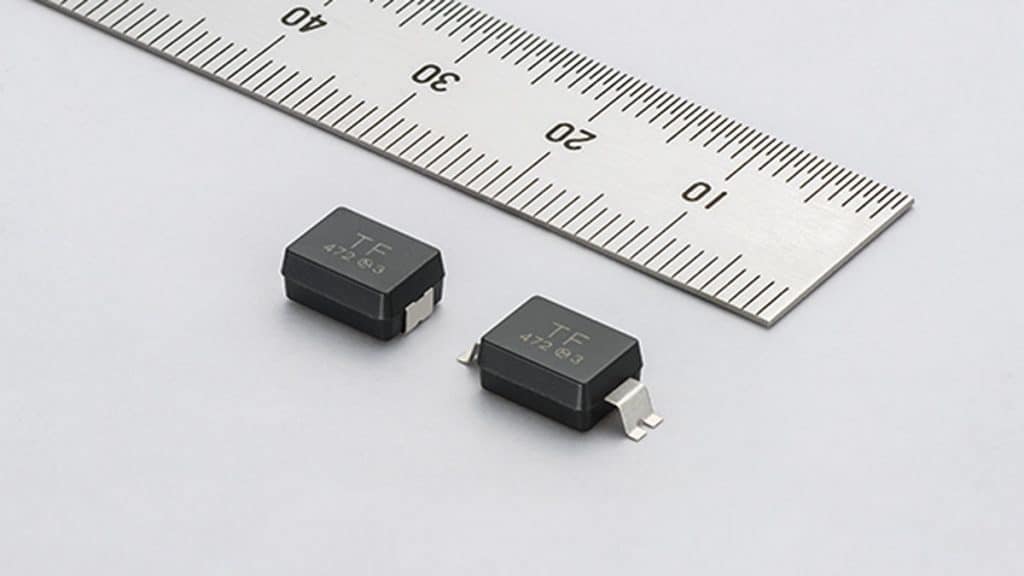Leading electronics manufacturer Murata has introduced multi-layer ceramic (MLCC) moulded capacitors that successfully draw on the company’s advanced resin moulding capabilities.
The EVA series of MLCCs moulded capacitors have properties that will be highly appealing to electric vehicle (EV) manufacturers. These capacitors are ideal for a wide variety of applications, such as on-board chargers (OBCs), inverters and DC/DC converters, battery management systems (BMS), and wireless power transfer (WPT) implementations.
Developed in accordance with IEC60384-14 requirements, the new safety-certified Y2 class MLCCs will be highly effective at suppressing common mode noise in next generation EVs.
Housed in surface-mount packages (each with a 12.7mm x 6.0mm footprint, plus a 3.7mm profile), these compact components have 305VAC/1500VDC voltage ratings and support industry-leading 10mm creepage distances. Consequently, they are able to address the greater isolation that migration to 800V powertrains will mandate, yet also remain aligned with the need for miniaturization in modern automotive systems.
The capacitance values of the EVA series range from 0.1nF to 4.7nF. These MLCCs are AEC-Q200 qualified, with an -55˚C to+125˚C operation temperature range covered. They have elevated withstand voltages of 2000VAC/60s and 4000VDC/60s. In addition, they exhibit low equivalent series inductance (ESL), so performance is not impaired at high frequencies. The metal terminal arrangement utilized in these capacitors provides greater elasticity. Formation of solder cracks and deflection cracks is thereby mitigated, so long-term reliability can be assured.
“With EV powertrains moving to higher voltages, longer creepage distances are now being required. Unfortunately, at the same time, constituent components need to take up less physical space,” explains Takahiro Yoshida, General Manager of Ceramic Capacitor Business Unit, Marketing Group, Marketing Department at Murata. “This is why our EVA series MLCCs will have a real impact, as use of resin moulding allows them to combine compactness with extended creepage.”
